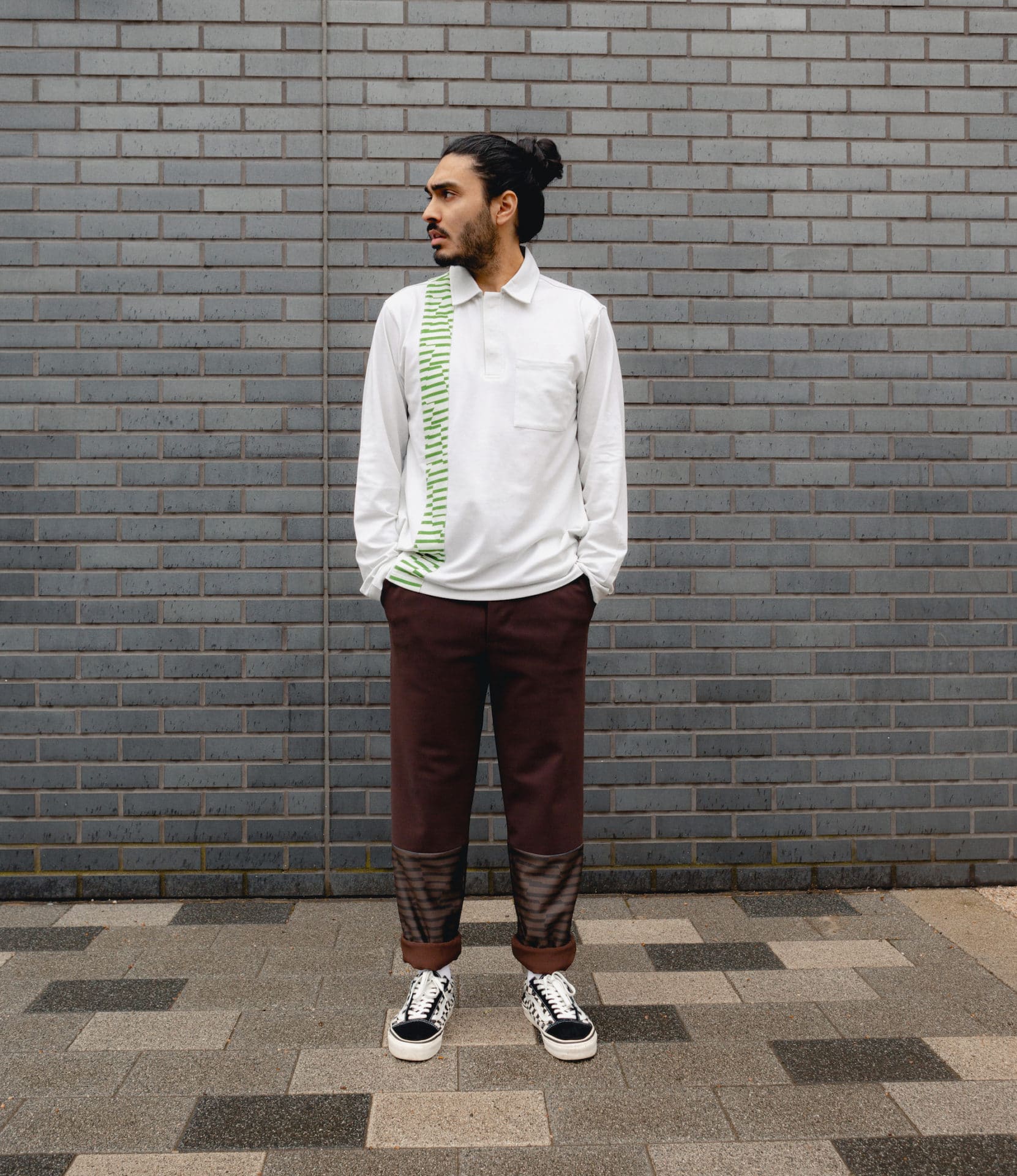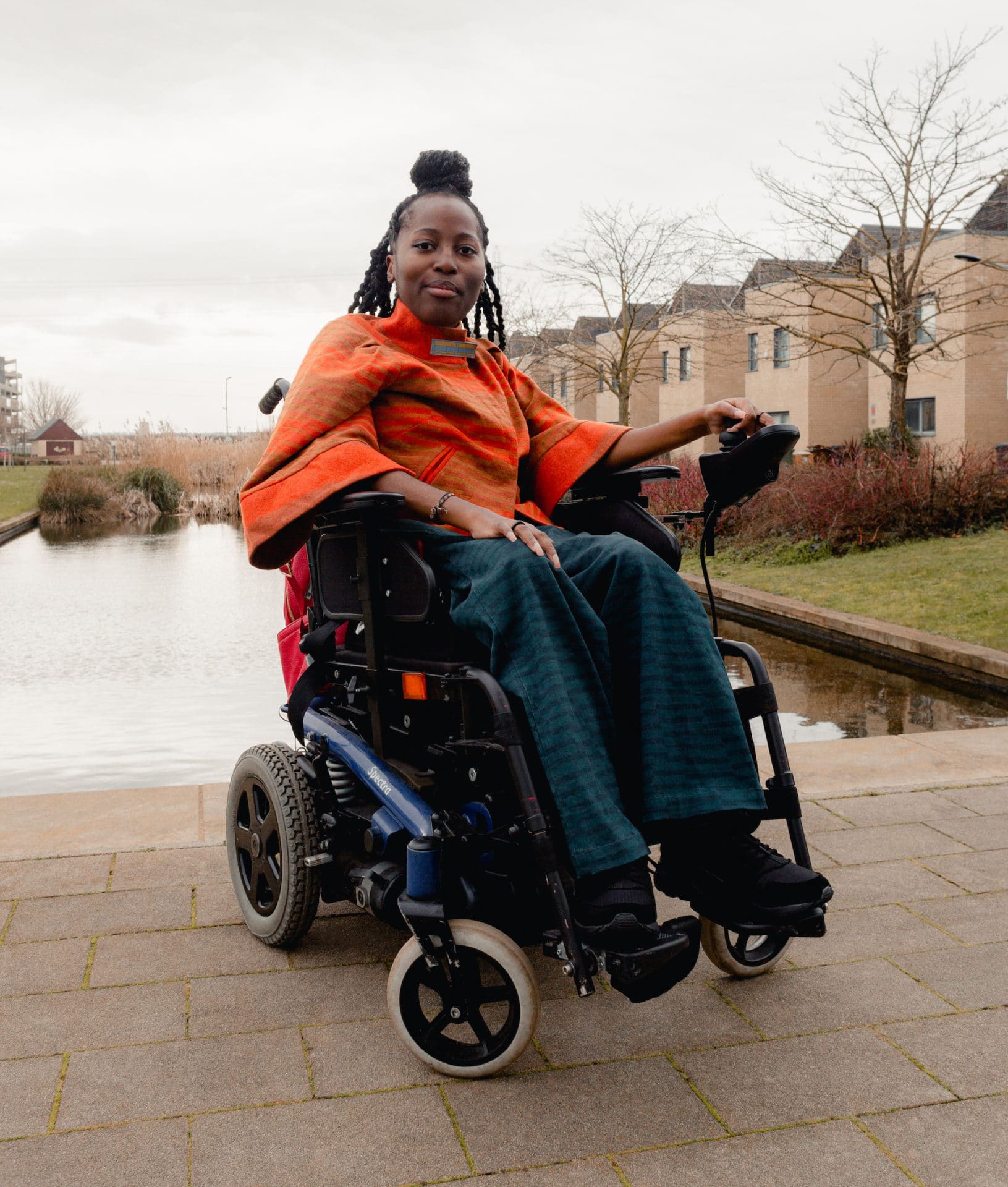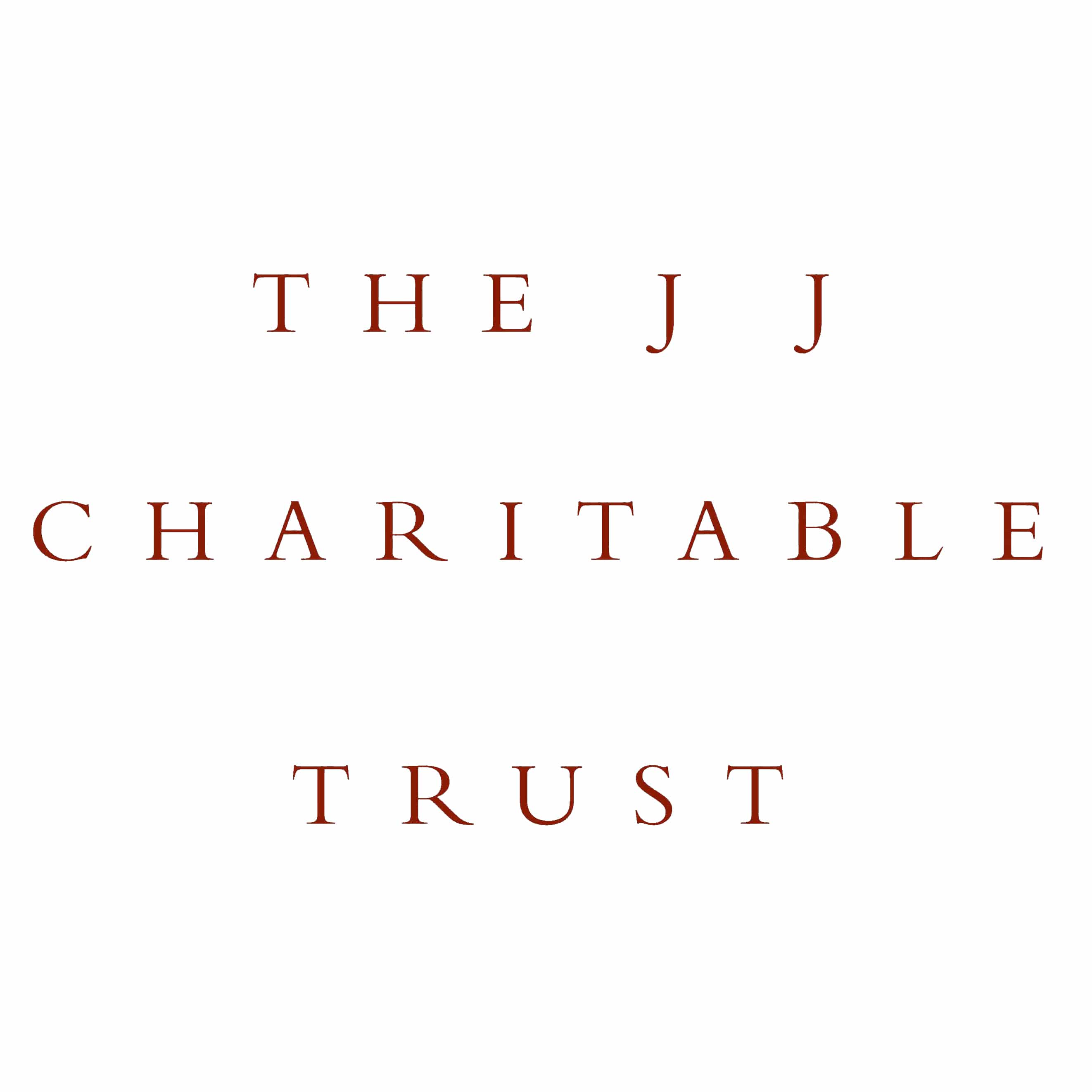United Kingdom (Milton Keynes)
Sitting comfortably? For the 1 billion people around the world who live with a disability, wearing standard clothing can mean ill-fitting, uncomfortable outfits that make dressing difficult.
[RESET] is a clothing brand that has set out to change this, by making clothes that are designed for people who are mobility challenged.
Sisters Monika Dugar and Usha Dugar Baid saw first hand how difficult getting dressed can be when their father was diagnosed with Parkinson’s. Monika, who was studying at the London College of Fashion when her father received his diagnosis, focused her final year project on the creation of an adaptive range.
Together with Usha, she launched [RESET] during London Fashion Week 2021 at a Fashion Open Studios virtual live event. This first collection and the garments created since are carefully designed to make dressing easier for the ageing and mobility challenged.
Fastening buttons, pulling a t shirt over your head – these actions are all more difficult for those with motor skill degenerative diseases or other mobility restrictions. Simple changes like Velcro fastenings and multiple differently angled pockets can mean people are able to dress independently and wear clothes with more ease and comfort. Avoiding restrictive styles and certain fabrics can also prevent the triggering of symptoms.
The design changes may seem simple, but the [RESET] team have created them in response to a challenge that is complex and multi-faceted. “There is a huge amount of diversity in the disabled community that often gets neglected,” Monika says. “Two people with the same disability can have totally different ways of addressing it.” While some have tremors and therefore need garments that don’t require ironing, others need to avoid clothes that use magnets as buttons due to having a pacemaker.
There’s a lot to consider, and [RESET]’s design process includes multiple stages of prototyping, testing and feedback to create each garment. “Many parts have to come together to make a beautiful piece which is centred on real human needs,” Usha explains. “There are so many small factors that need to be incorporated while designing even one garment. It’s a long process of trial and error if we really want to solve problems faced by people with disabilities and to empower them.”
It’s important that clothes don’t just fit and function well, but look good too. [RESET]’s designs aim to challenge the idea that adaptive clothing is, as Monika puts it, “boring, or sacrifices stylishness”. Adaptive clothing needs to consider “the all important ‘look’ and ‘self confidence’ factors alongside those of functionality – something that is currently missing from the market”.
![[RESET]](https://atlasofthefuture.org/wp-content/uploads/2021/06/Reset-jacket-dress-1024x875.jpg)
Alongside Monika and Usha’s father, another muse for [RESET]’s work has been the writer, speaker, stand-up comic and award winning charity campaigner Emma Lawton, who was diagnosed with Parkinson’s at the age of 29. Usha says: “Emma has been a great inspiration throughout our journey. She told us that her mother liked our London Fashion Week collection so much that, even without any disabilities, she wanted to wear our adaptive wear collection, which is the biggest achievement for us”.
Monika’s favourite [RESET] pieces are the Blue Jacket Dress (above) and Wrap Dress (below): “we love the colour contrast, the look, the cut – and they are so easy to wear! Both pieces have functionality and style interwoven into them.” Easy fastenings and a wider neck make dressing and undressing more straightforward, pockets at different angles are easy to access for people with different needs, and the print itself provides visual cues.
![[RESET]](https://atlasofthefuture.org/wp-content/uploads/2021/06/Reset-wrap-dress-1024x889.jpg)
Alongside developing new collections based on their ongoing research, [RESET]’s next steps will also take them into the world of wearable technology – which has the potential to make people’s clothes part of an entire operating system that could help them manage their health.
“It has been an eye-opening journey for us, to see how small changes to clothing can make such a difference to someone’s life,” Usha says. “It would give us a profound sense of satisfaction if we can change someone’s life through our work.”
![[RESET]](https://atlasofthefuture.org/wp-content/uploads/2021/06/Reset-_B5B2144-copy-1024x768.jpg)
Monika hopes that [RESET] is part of the beginning of a much bigger change in the industry. “People are getting diagnosed in their twenties with young onset Parkinson’s and other motor neurone diseases,” Monika adds. “We need to raise awareness and make clothing more inclusive because features, design, print and colours can help people to feel more confident. It’s unbelievable that these problems are being overlooked in the industry and by high street brands.”
AtlasAction: A message from the Dugar sisters: “If you want to see a product or feature that might help you, we will be all ears for it!” Get in touch via their contact page.
Bio
Nature-geek, urban forager and all-round wordy sort. Freelance writer for people that care about the future. Often found reading while walking.
Project leader
Monika Dugar, Cofounder; Usha Dugar Baid, Cofounder
Partners
This project has been selected as part of FashionFutures, a new content channel that maps the work of people transforming the fashion sector: the designers, craftspeople, social innovators, educators, community leaders and communicators. Atlas of the Future is excited to partner with Makerversity, with the support of The J J Charitable Trust and their network of fashion friends.
Support the Atlas
We want the Atlas of the Future media platform and our event to be available to everybody, everywhere for free – always. Fancy helping us spread stories of hope and optimism to create a better tomorrow? For those able, we'd be grateful for any donation.
- Please support the Atlas here
- Thank you!





